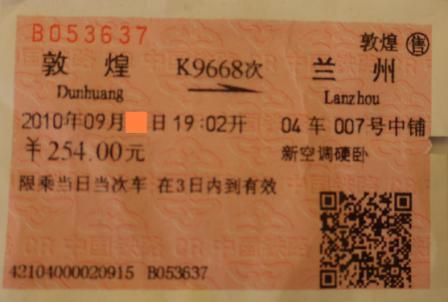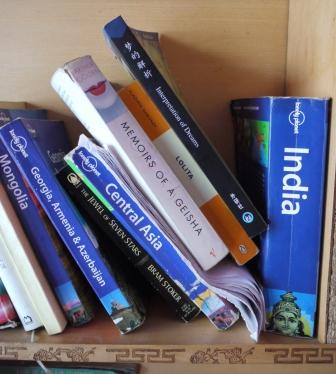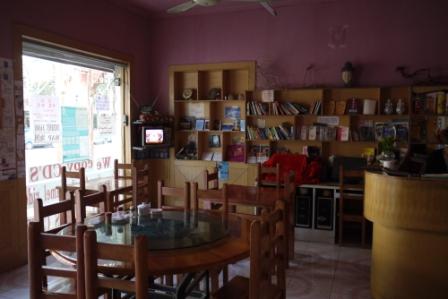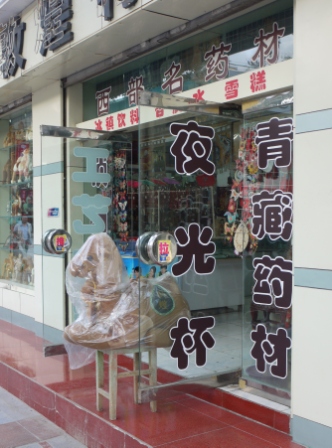The road tunnel was bricked up, the bright blue steel door padlocked on the inside. From within the sound of workmen, too distant to hail and ask if they’d let me through. Prospects weren’t good. I’d insufficient daylight left to return to the last town, find an alternative route to my intended stop at Dingxi (pronounced "Dingshi" – possibly) and make it there before dusk. Besides, I wasn’t exactly sure there was one, other than the Expressway running roughly parallel with the old highway I was following. Or trying to. And no guarantees I’d be allowed to ride on the new road.
Some miles back I’d asked for directions at a small truck stop. A young woman had indicated I follow the road I was now on. A short while later she’d caught up with me in her car, accompanied by her husband and daughter. Whilst this was indeed the road to Dingxi, there was some sort of problem ahead. Something about a tunnel. Unlit perhaps. I showed them my lights. This didn’t seem to allay their concerns, but it appeared I could go this way, perhaps a short detour ahead. And a steep climb.
Now it all made sense. So, there must be a way around, presumably contouring around the steep hill through which the tunnel ran. Which also explained the two Chinese touring cyclists I’d seen half an hour earlier, heading in the other direction. A way through to Dingxi. If there wasn’t I was sure they’d have stopped me.
A short way back from the tunnel entrance a rough track led off to the right. I followed it simply because I couldn’t see an alternative. Steep and dusty, it wound slowly up the hillside, long vertical drops to one side for much of the way. Occasional deep patches of fine grit, attempting to wrench the bike towards the edge. Only the odd goat for company, unperturbed by my presence. The eventual descent back to the old highway almost as perilous as the climb up, traction difficult to maintain on the loose surface.
Back on tarmac of sorts, for the most part downhill towards Dingxi. Steady progress, but not enough to reach my intended destination before dusk. I’d been much slower leaving the city of Lanzhou than I’d expected, some unexpected climbs. And I’d not bargained for the tunnel detour.









